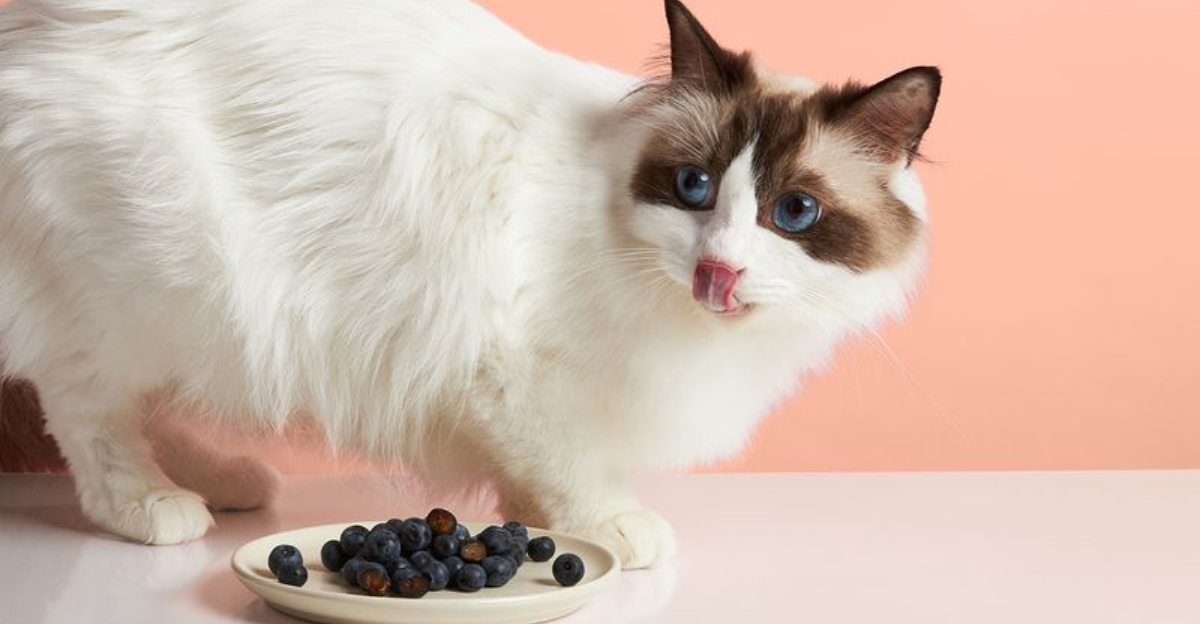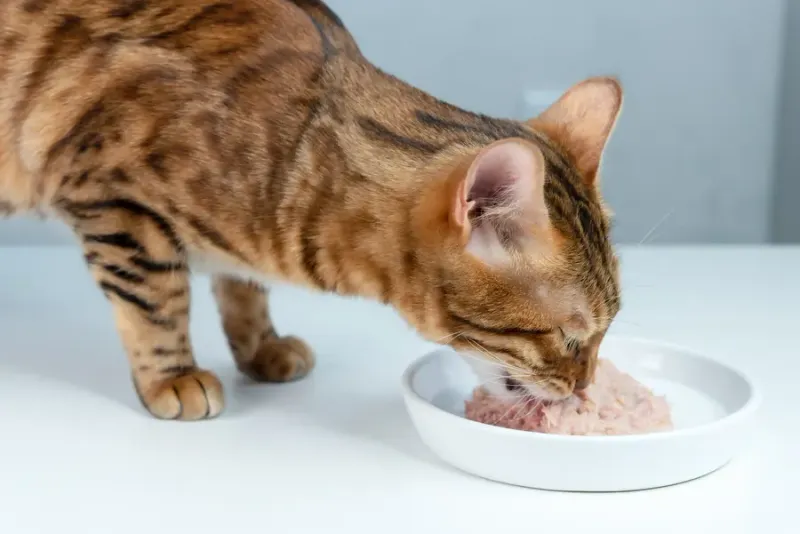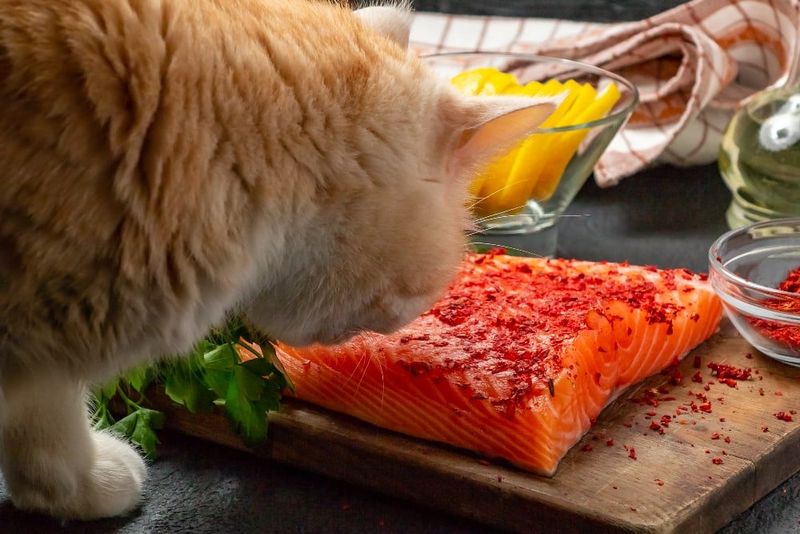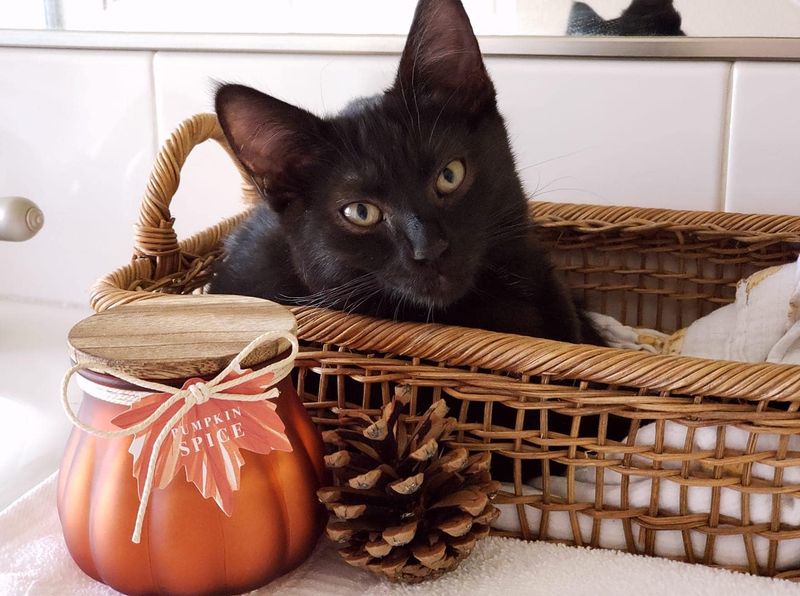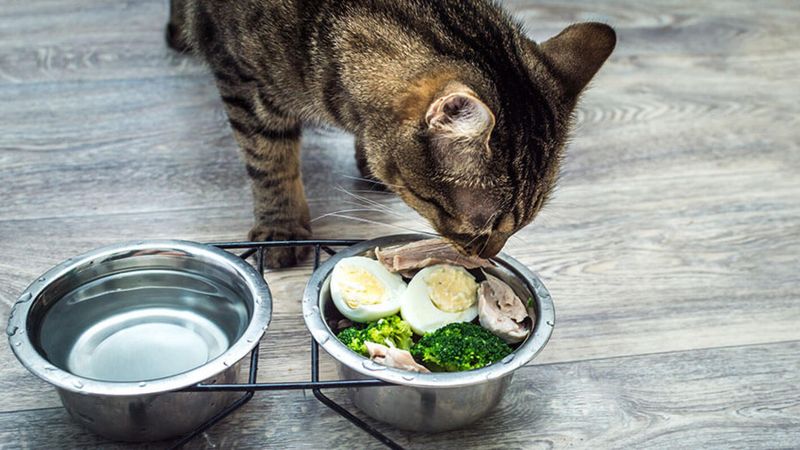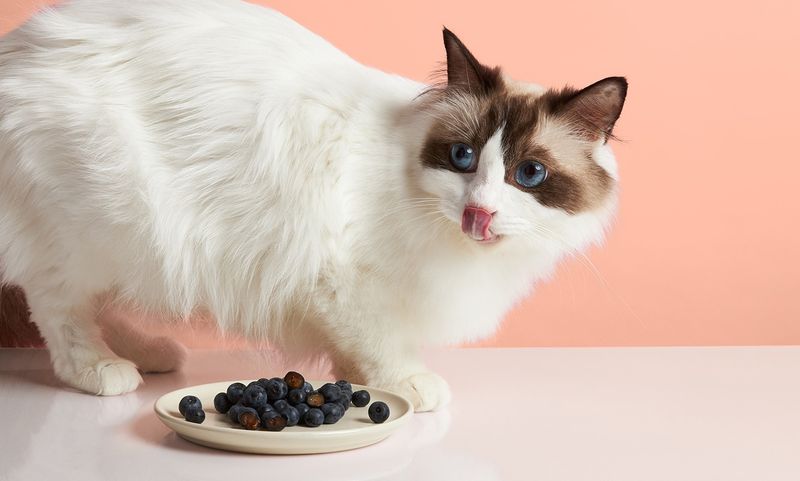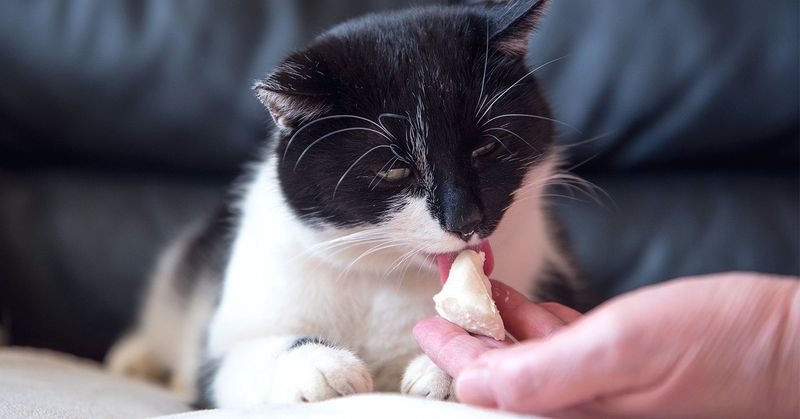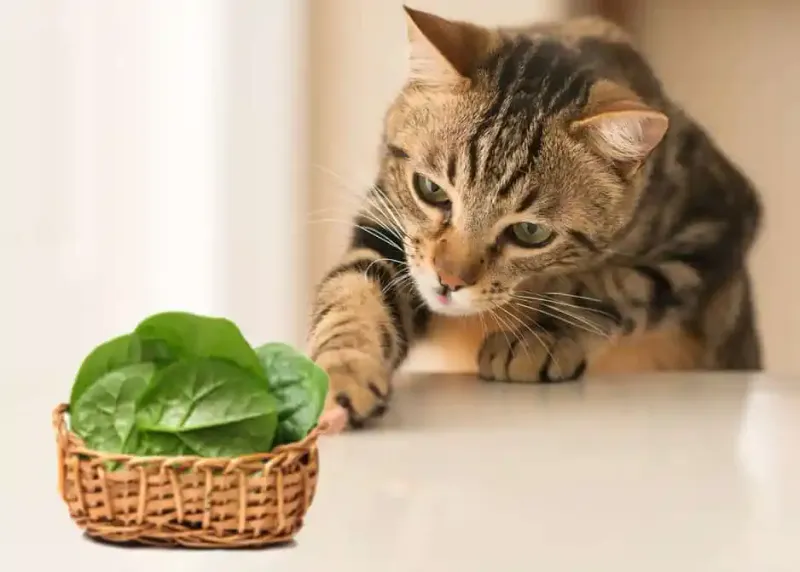📖 Table of Content:
Cats thrive on a diet tailored to their unique nutritional requirements, but certain human foods can complement their meals when chosen carefully. These options offer more than just a change in flavor—they can provide valuable nutrients and health benefits. When served properly, they can enhance both well-being and enjoyment.
Some foods found in the average kitchen can support digestion, coat health, and even hydration in cats. Offering these in moderation helps prevent dietary imbalances while introducing new tastes and textures. Every addition should be mindful, focusing on safety and simplicity.
Veterinarians recognize a handful of human foods as safe and beneficial for feline consumption. These treats can be used to enrich a cat’s routine or reward good behavior. With the right approach, mealtime becomes a more engaging and nutritious experience.
1. Cooked Chicken
Cats and chicken have an age-old bond. Cooked chicken provides a delightful protein punch that’s both safe and nutritious for your cat. Ensure it’s plain, without any seasoning or spices that could upset their stomach.
Some cats love the texture of shredded chicken, making it an exciting treat. It’s an excellent source of lean protein, crucial for maintaining your cat’s muscular health and energy levels.
Introduce it as an occasional treat, not a meal replacement, to diversify their palate without compromising their dietary balance. Always serve it boneless and skinless for safety.
2. Salmon
A tasty delight from the sea, salmon is a favorite among feline foodies. Its rich, oily texture is not just tempting but packed with omega-3 fatty acids, which are excellent for a cat’s coat and overall health.
Serving salmon cooked, without any spices or sauces, ensures your cat enjoys this delicacy safely. The natural oils can help enhance their fur’s luster and keep their skin supple.
Offer salmon as a special treat, not a staple, to maintain a balanced diet. Moderation is key to preventing unnecessary weight gain or nutritional imbalance.
3. Pumpkin
The autumn staple, pumpkin is a surprising ally for your cat’s digestive health. Its fibrous nature can help settle an upset stomach and aid in regulating bowel movements.
Ensure the pumpkin is plain, with no added sugars or spices, and it’s cooked or pureed to make it easy for your cat to digest.
A teaspoon mixed into their regular food can be an easy way to introduce it. Cats with sensitive tummies might find pumpkin a soothing addition to their diet, bringing comfort and relief.
4. Cooked Eggs
Who knew breakfast could be a treat for your cat too? Cooked eggs are a fantastic source of protein and essential amino acids, offering a nutritious boost to their diet.
Serve the eggs scrambled or boiled, ensuring they’re plain and well-cooked to avoid any bacterial risks. The creamy texture of scrambled eggs is often irresistible to cats.
This delightful snack should be given in moderation. While eggs are healthy, they’re also calorie-dense, so balance is essential to keep your feline friend fit and healthy.
5. Blueberries
Blueberries might seem an unusual choice, but their antioxidant-rich profile makes them a powerhouse snack for cats. These tiny berries can contribute to your cat’s overall health by boosting their immune system.
Offering a few berries washed and fresh is an excellent way to provide them with a refreshing treat. Some cats are fascinated by their texture, enjoying the burst of flavor.
While they can be fun, it’s best to keep portions small. Use them as an occasional treat to avoid any digestive issues and to maintain dietary balance.
6. Carrots
Crunchy and colorful, carrots can be a delightful snack for your feline. Rich in beta-carotene, carrots can support your cat’s vision and immune health.
Serve them cooked and diced to make them easier for your cat to chew and digest. The natural sweetness of carrots can be appealing to some cats, providing a tasty, healthy treat.
Always introduce new foods slowly to monitor any reactions. Carrots are best given in moderation to ensure they don’t overwhelm your cat’s standard diet.
7. Cheese
Cheese can be a delightful indulgence for some cats, though not all felines can properly digest dairy. A small piece of cheese can offer protein and calcium, making it a tempting treat.
It’s crucial to monitor your cat’s reaction, as some may tolerate cheese better than others. Opt for hard cheeses like cheddar, which are lower in lactose.
A tiny cube can be enough to satisfy their curiosity and taste buds. If your cat shows any signs of lactose intolerance, it’s best to avoid cheese completely and choose other safe treats.
8. Spinach
Leafy greens aren’t just for humans! Spinach can be a nutritious addition to your cat’s diet, packed with vitamins like A, C, and K, as well as iron and calcium.
Serve spinach fresh and washed or lightly steamed to ensure it’s safe for your feline. Some cats might enjoy the texture of the leaves, offering a satisfying crunch.
However, spinach should be given sparingly, especially if your cat has a history of urinary issues, as it contains calcium oxalate, which can exacerbate such problems.
9. Oatmeal
Oatmeal, a breakfast staple, can be surprisingly comforting for cats. It’s a great source of energy, providing fiber and essential nutrients that can aid in digestion and overall health.
Serve it plain and cooked, avoiding any sugar or flavorings that could upset their stomach. Some cats appreciate its warm, mushy texture.
Introduce oatmeal gradually, mixing a small spoonful into their regular food. This ensures they receive the benefits without overwhelming their palate. It’s a cozy treat, perfect for a chilly day or when your cat needs a comforting meal.
